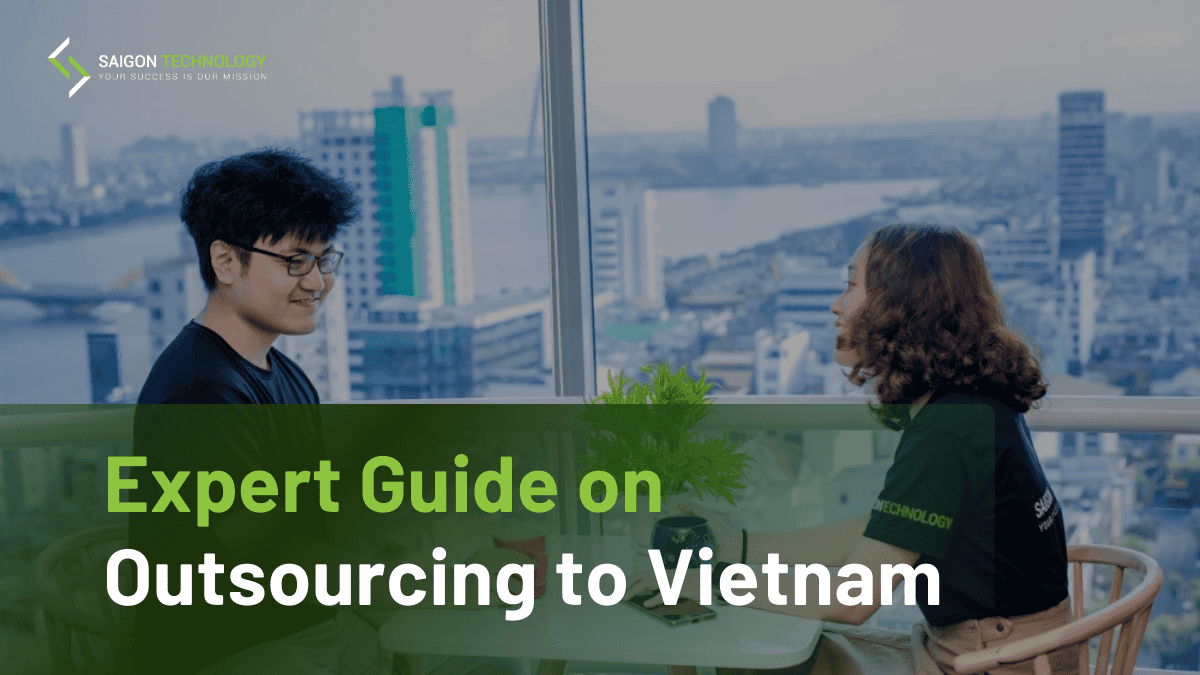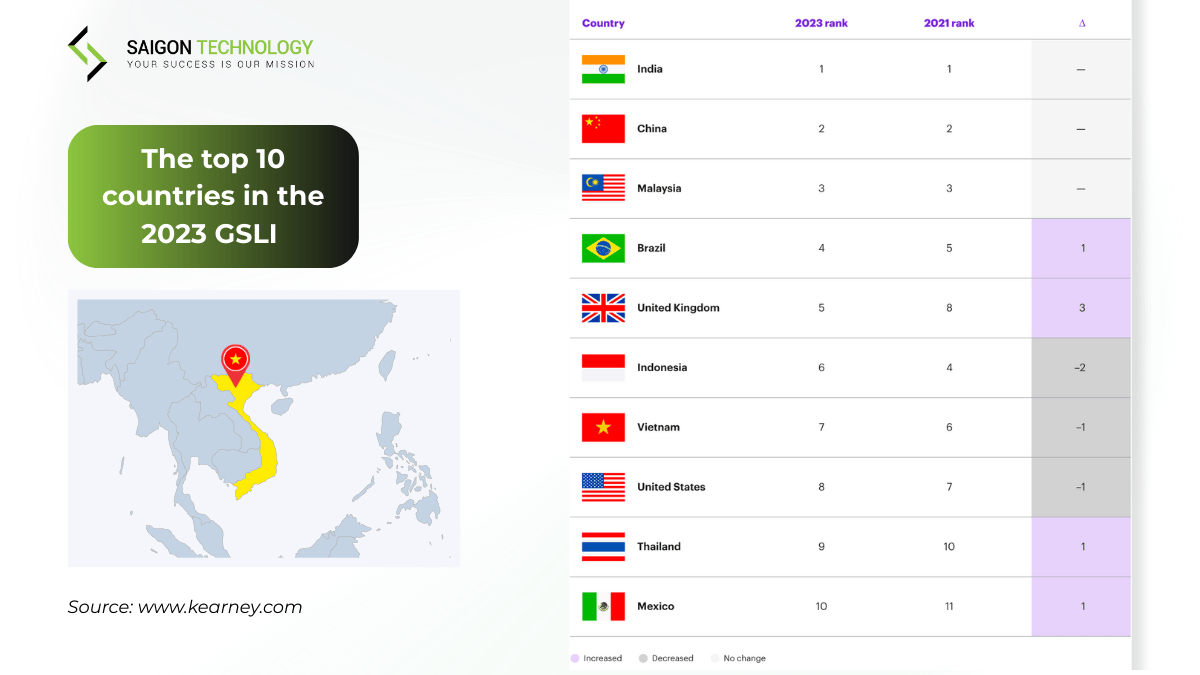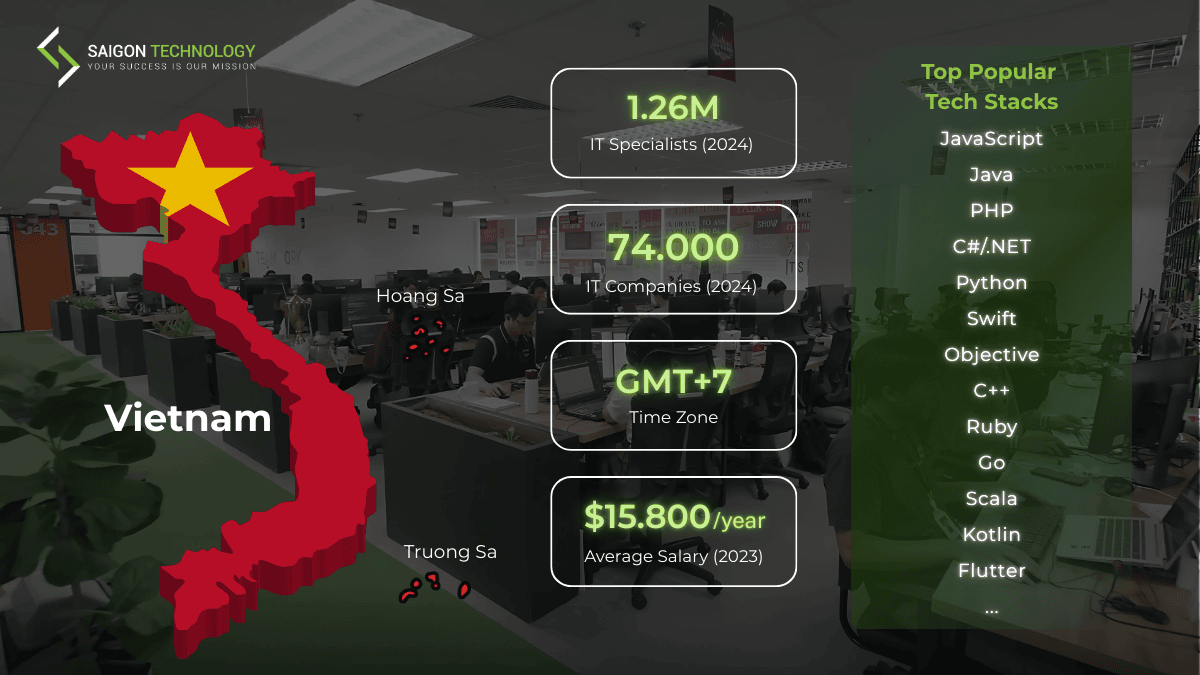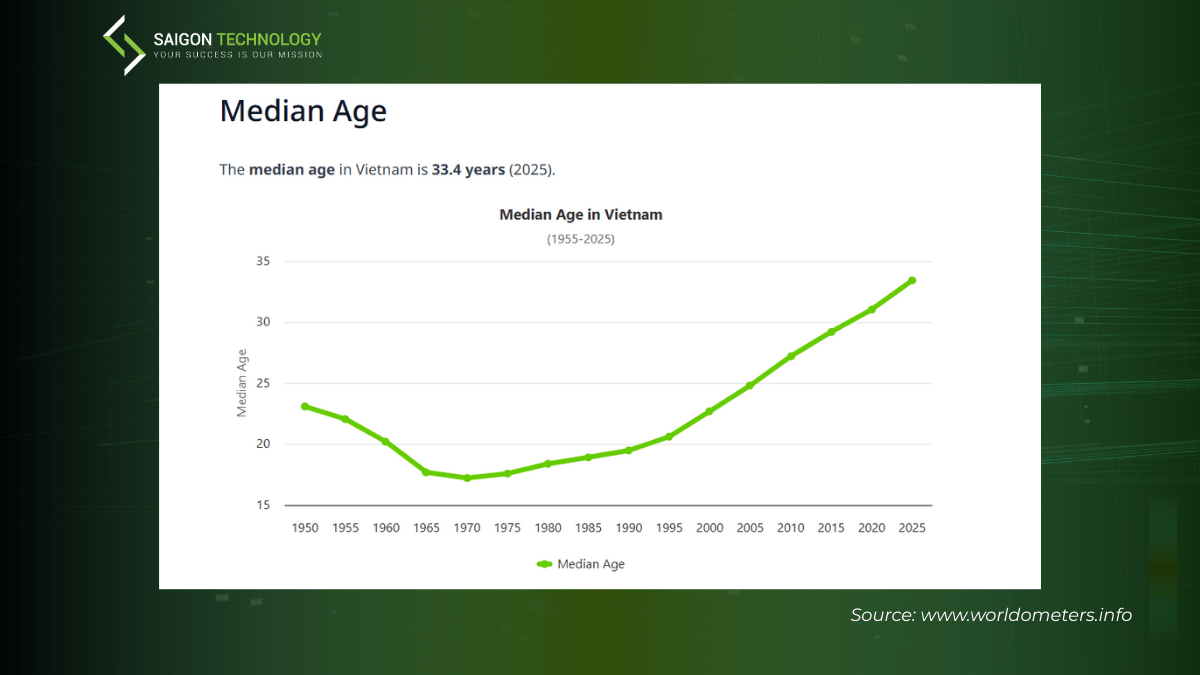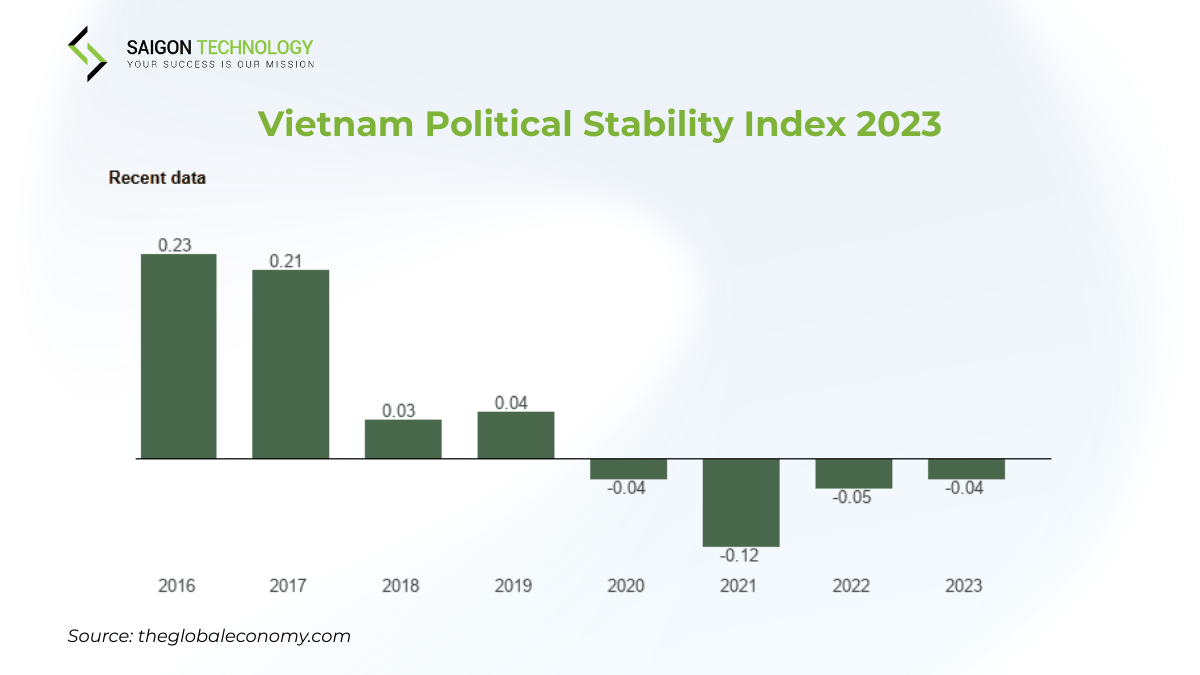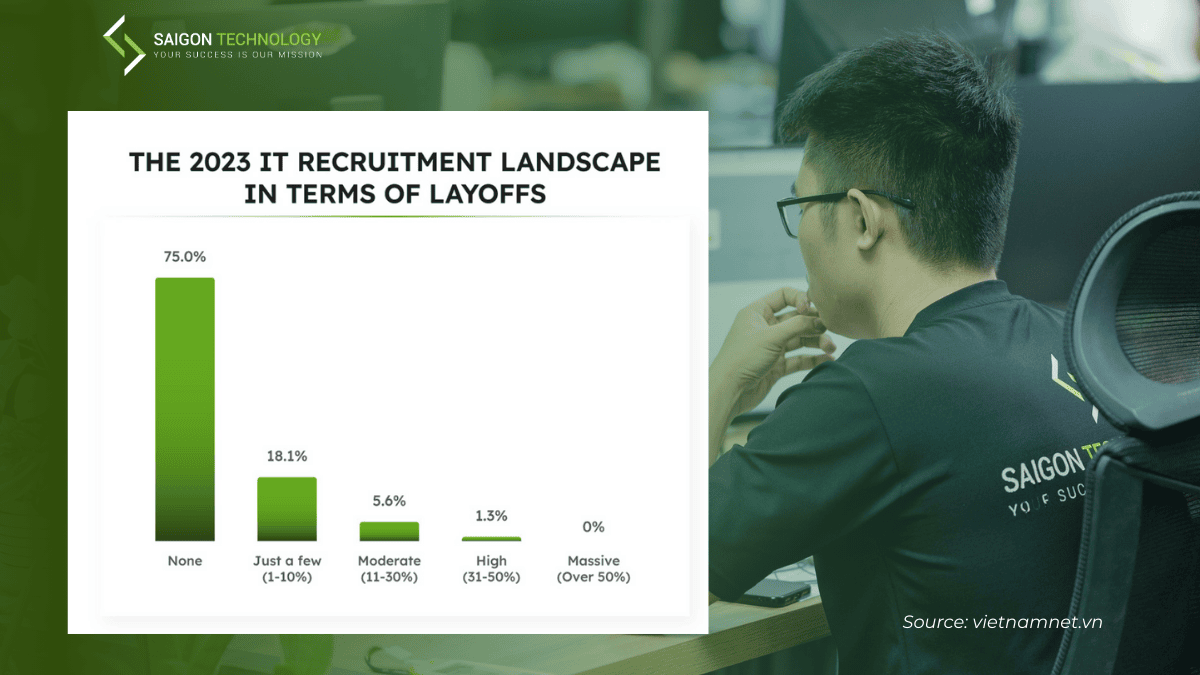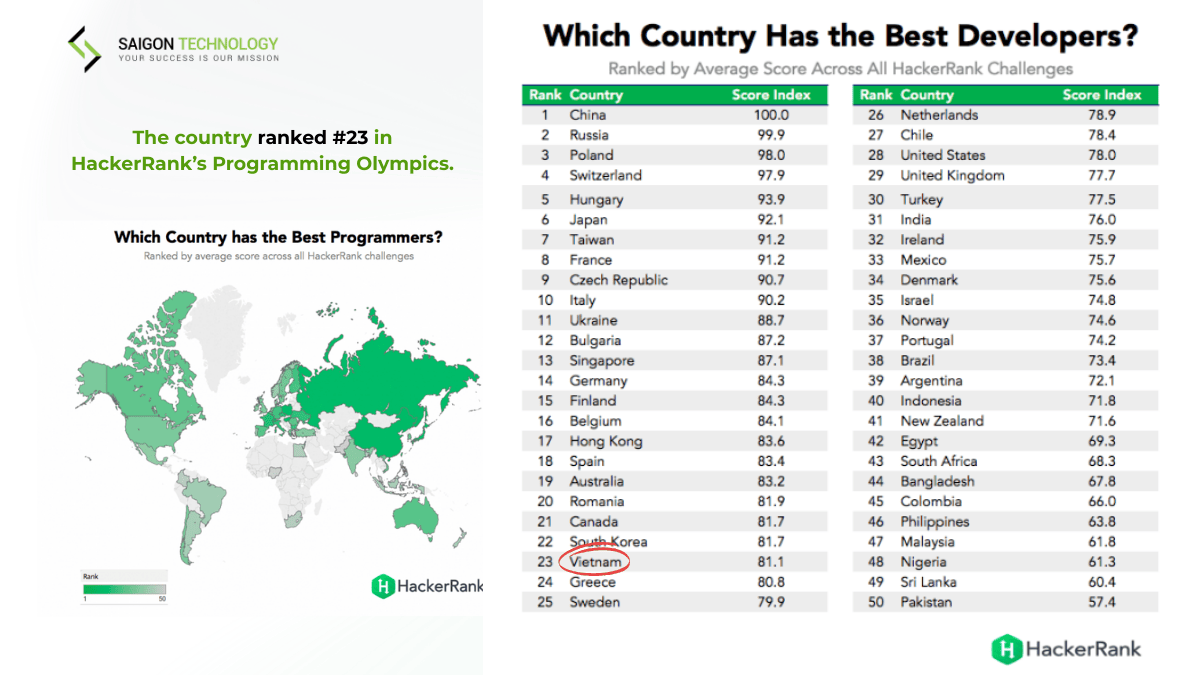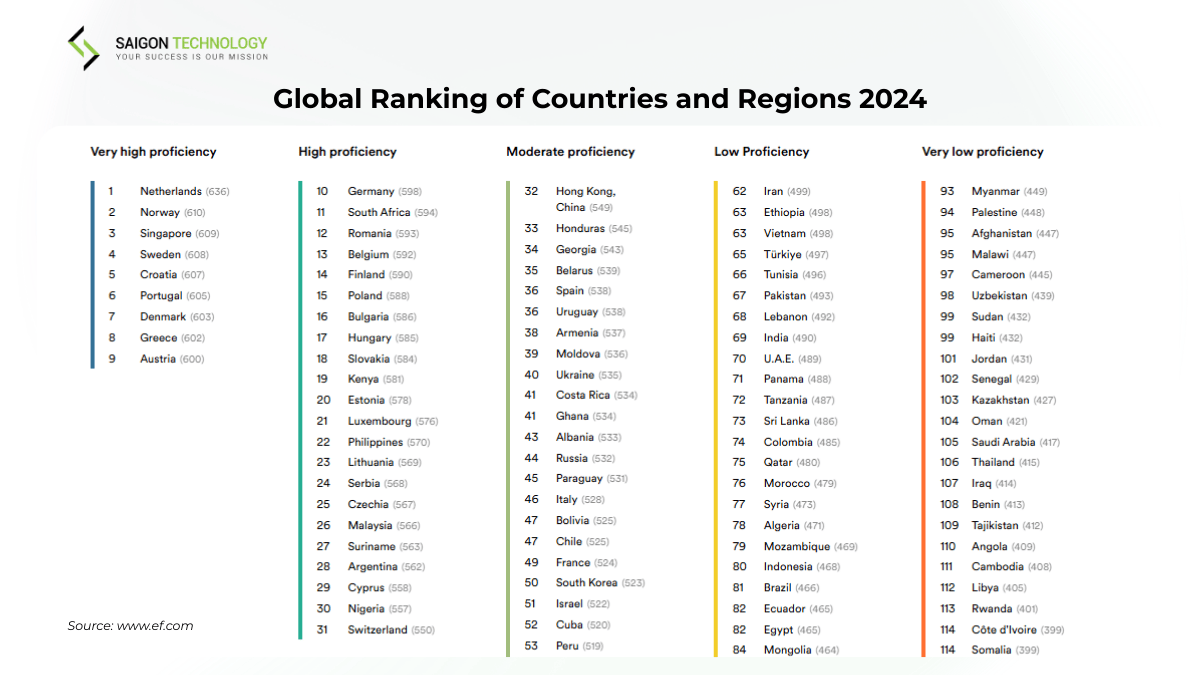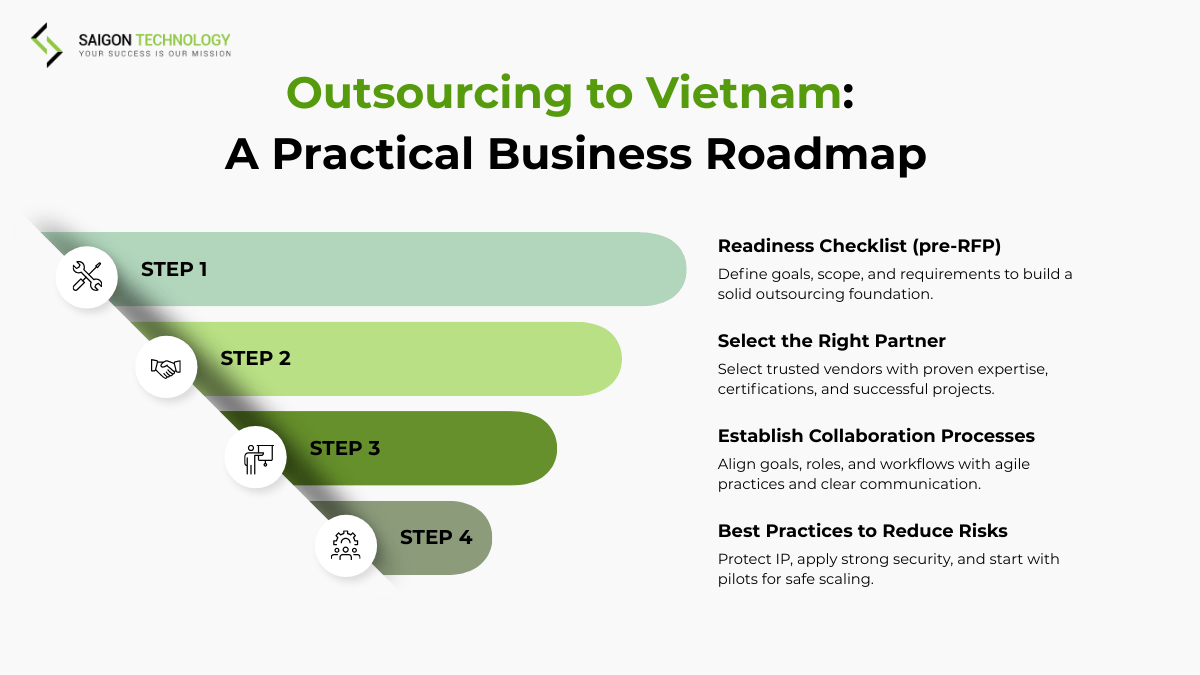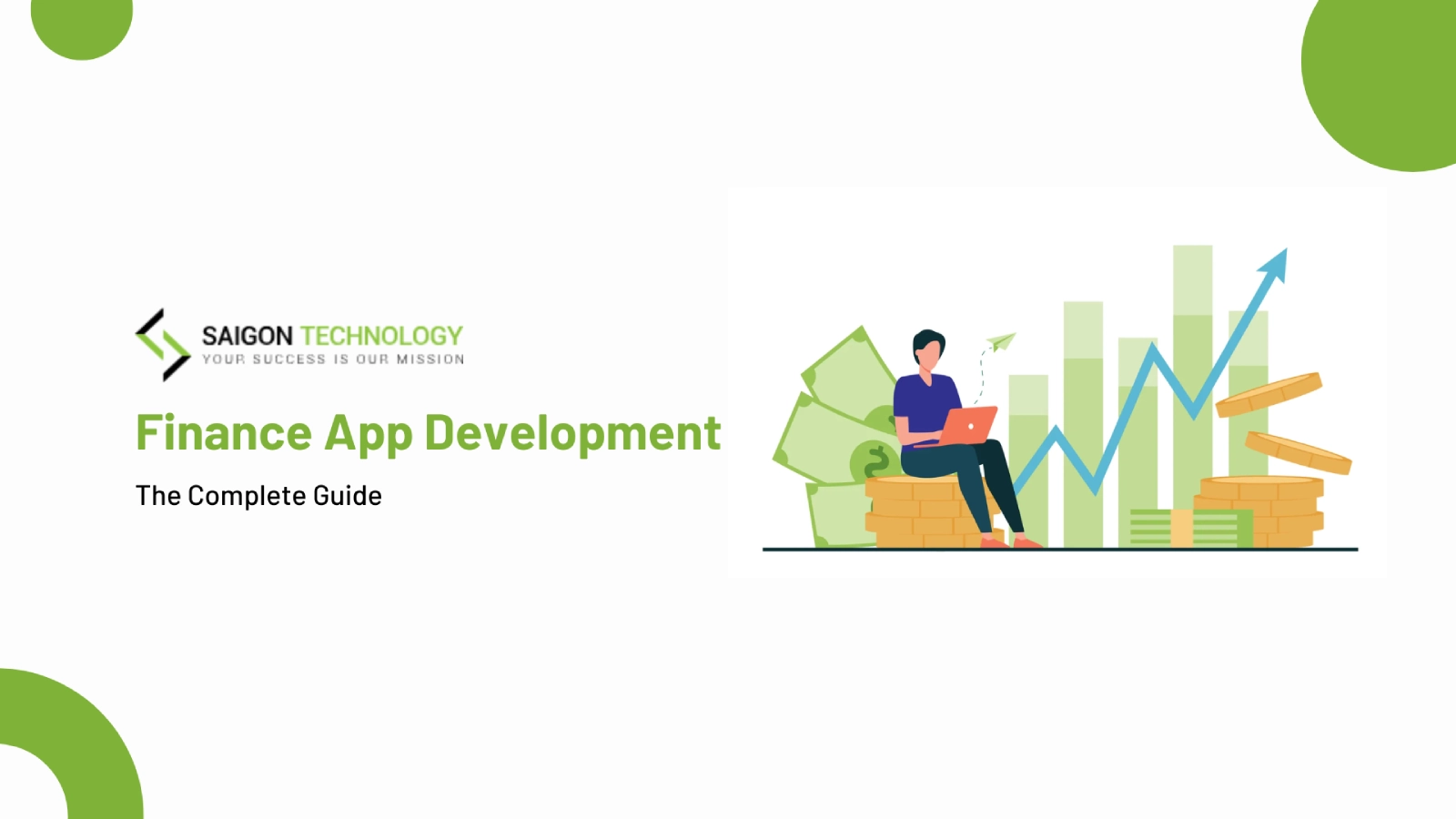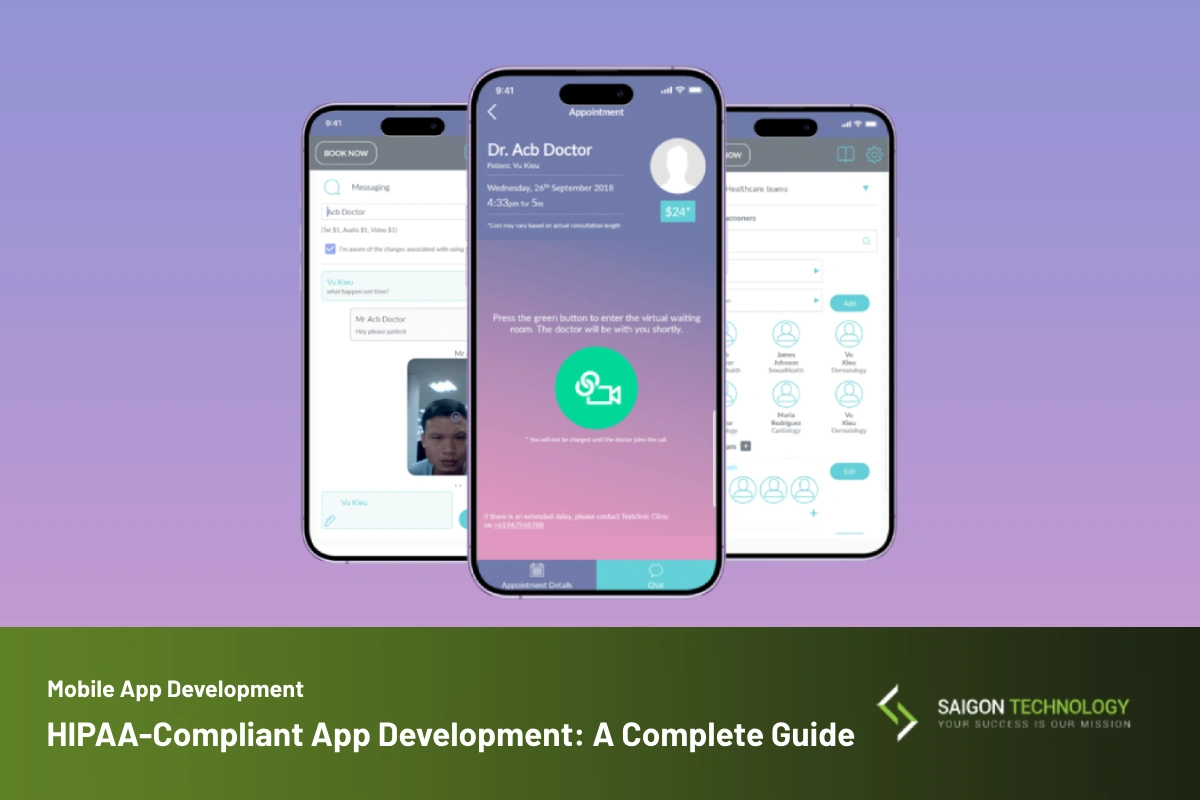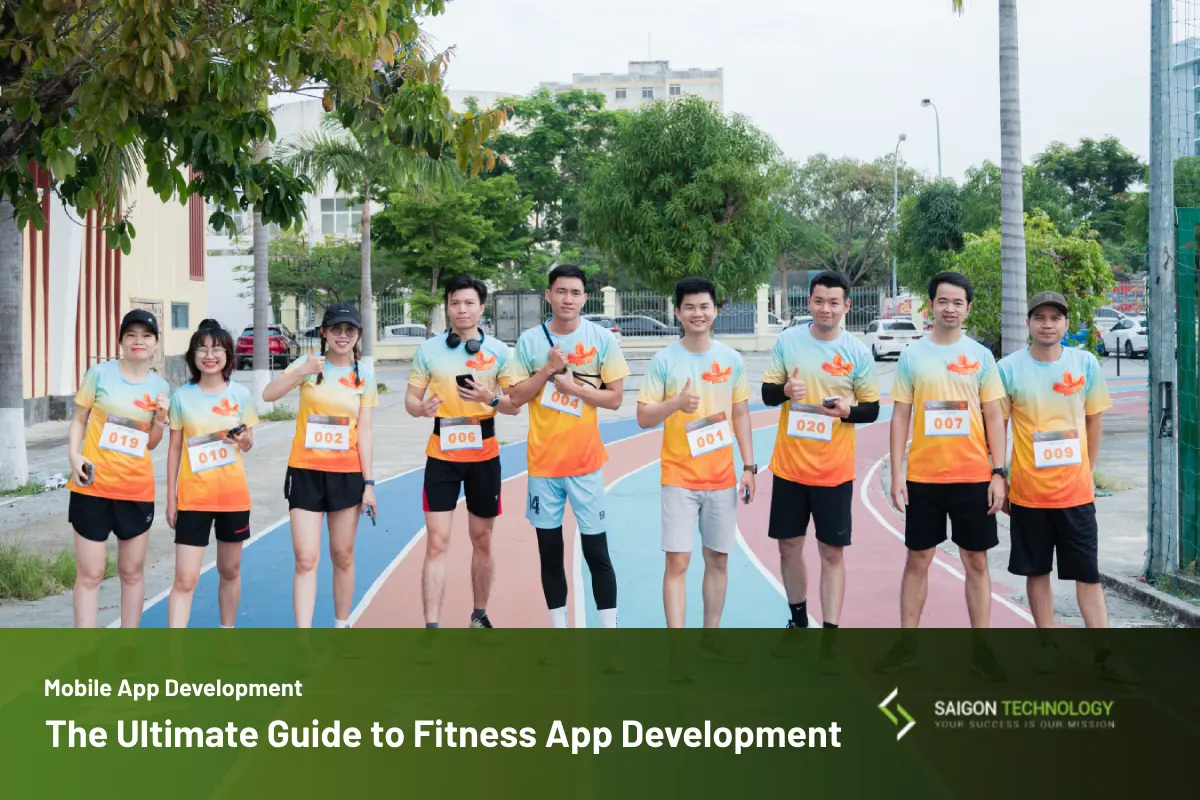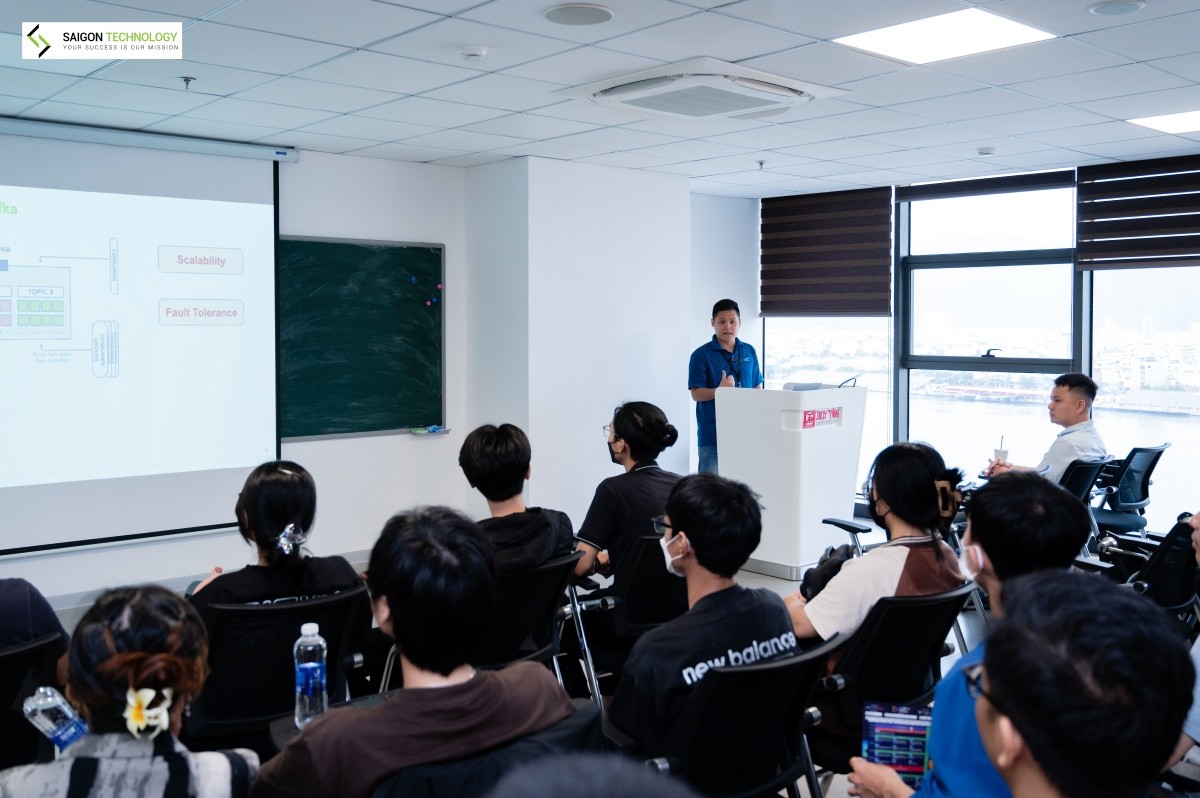IT outsourcing in Vietnam offers an exceptional cost-to-skill ratio. The young, agile professionals here stand out with strong technical expertise. Government support fuels the country’s dynamic and fast-growing economy. Their efforts also include the steady investment in STEM education. Moreover, Vietnam is located in Southeast Asia within the Indochina Time Zone (GMT +7). Thus, outsourcing to Vietnam provides excellent overlap for global collaboration.
Saigon Technology stands out as one of the leading IT outsourcing companies in Vietnam. We have 3 development centers in Ho Chi Minh City and Da Nang. Our team manages projects from onboarding to delivery. Agile methodologies help ensure efficiency, quality, and reliability. Experienced professionals and advanced infrastructure empower clients worldwide to achieve their goals.
Overview of Vietnam’s Outsourcing Industry
Outsourcing in Vietnam offers access to a growing pool of skilled IT talent at a cost-effective price. Government incentives and a stable business environment assist global investments. This way, Vietnam outsourcing helps businesses with IT talent shortages and scaling needs. Rising labor costs can also be avoided.
Global giants like Intel, IBM, Samsung, Microsoft, and Nvidia invest heavily in the outsourcing industry in Vietnam. Ranked #7 in Kearney’s 2023 Index, Vietnam offers cost advantages and global recognition.
Vietnam’s IT Outsourcing Market Growth
The Vietnam outsourcing market is expanding rapidly. In 2024, the narrow ITO segment generated approximately US$698 million. This figure may reach US$880M by 2028. The growth highlights strong momentum for outsourcing in Vietnam.
In 2024, about 74,000 companies employed 1.26 million ICT workers. They generated US$158B in revenue. Foreign sales hit US$11.5B. This impressive figure proves that outsourcing to Vietnam is globally competitive.
Advantages of Outsourcing to Vietnam
Outsourcing to Vietnam offers tons of benefits in terms of price and tech skills. Let’s see why this country should be your ideal destination!
Price Advantages in Vietnam Outsourcing
Price is the top concern when businesses choose outsourcing solutions. But software development in Vietnam makes it far less of an issue.
Economical Labor Costs
According to Glassdoor (2025), developers in Vietnam earn around US$950 every month. This rate is far below Eastern Europe’s US$2,000–4,000. Cost-effectiveness comes with strong talent and a stable business environment. The cost-to-skill edge makes it a leading outsourcing hub. That’s why Vietnam ranks #5 globally on MarketsInsider’s 2019 list of best countries to outsource.
Lower Operational Overhead
Office rental and infrastructure costs in Vietnam are far lower than in Western nations and even regional hubs. An investment-friendly climate minimizes overheads like internet and utilities.
According to Numbeo’s Cost of Living Index (2025 mid-year), Vietnam scores 25.9 (NYC=100), making it one of the lowest-cost countries globally. Hence, ITO companies in Vietnam benefit from affordable labor and operational efficiency.
Government Incentives
The Vietnamese government supports foreign investors through tax holidays, grants, and ICT incentives. Global businesses can then reduce setup and operational costs.
Improved Value for Money
Outsourcing in Vietnam means you work with a skilled, English-proficient workforce. You can balance price and high-quality services. Then, the savings will go into innovation, R&D, and scaling.
Compliance & Data Protection Readiness
Vietnam shows its growing emphasis on compliance and data protection. The country strengthens cybersecurity. Vietnamese companies also strictly follow industry regulations like GDPR and HIPAA.
Many vendors hold ISO 27001 and ISO 9001 certifications. NDAs, SLAs, and clear contracts further safeguard intellectual property. Thus, US and EU companies can confidently outsource to Vietnam. As long as you prioritize certified partners and conduct regular audits, no worries about data issues!
Strength in Modern Stacks
Vietnam’s outsourcing industry offers strong expertise across modern technology stacks. US companies can access up-to-date development skills. Here are some technologies your Vietnamese vendor can cover:
- Frameworks (Java, .NET, Python, Node.js, React, and Angular)
- Cloud platforms (AWS, Azure, and Google Cloud)
- Microservices
- Containerization (Docker and Kubernetes)
- AI and machine learning
- Blockchain
- IoT
Deep and Growing Talent Pool
Talent is the core of outsourcing success. What can you get from partnering with an outsourcing company in Vietnam?
Young and Tech-Savvy Workforce
Vietnam’s median age is 33.4. The youthful, tech-savvy population provides a large pool of skilled engineers. Vietnamese teams offer adaptability and digital fluency. Businesses looking to build a tech team in Vietnam can easily access this deep talent pool.
Hardworking and Reliable Workforce
Vietnamese professionals are known for their hard work, persistence, and intelligence. They bring strong responsibility and dedication to every project. According to HRM Asia (2025), they are also valued for their strong work ethic, loyalty, and a “get-it-done” attitude. These qualities make Vietnamese professionals highly reliable partners. Global companies get strong technical skills and a reliable workforce.
Strong Education System
Vietnam’s government emphasizes technical education. The country produces about 50,000 – 57,000 IT graduates and 530,000 engineers worldwide. Around 27–29% of students here pursue STEM majors. Top-tier IT professionals from leading universities like HUST, UIT, HCMUS, FPT, and HCMUT enrich the talent pool.
Proven Skills in High-Demand Fields
Vietnamese developers are skilled in AI and cloud. You can also access experts in blockchain, analytics, and QA. Major hubs like Ho Chi Minh City, Hanoi, and Da Nang provide proactive and self-reliant professionals.
Vietnam’s Business Landscape
Vietnam is known for a friendly and stable business landscape. This environment makes outsourcing in Vietnam attractive for global companies.
Stable Politics and Society
Vietnam provides a stable political environment. In 2023, its political stability score stood at -0.04. The record reflects reliable conditions compared to other countries. This way, customers can reduce risks for long-term partnerships.
Favorable Investment Policies
Vietnam’s investment-friendly climate comes with free-market policies and trade agreements. FDI reached $38.2B registered and $25.3B implemented in 2024. This growth also shows the rapid growth in the BPO industry.
Low Employee Turnover
According to VietnamNet, 75% of companies avoided layoffs. 47.2% reported only a light 1-10% attrition rate. Global clients don’t have to worry about workforce stability.
English & Communication Fit
Vietnamese developers have outstanding communication skills. Collaboration with global businesses becomes smoother and more effective.
Strategic Geographical Location
Vietnam has a strategic location in Southeast Asia and the GMT+7 time zone. This position enables round-the-clock operations with both Western and APAC businesses.
Growing English Proficiency
Vietnam ranked 63rd of 116 nations in English abilities. Aside from language proficiency, Vietnam’s IT workforce understands Western business practices. These strengths support global outsourcing.
Challenges When Outsourcing in Vietnam
The notable benefits encourage businesses to enter this market. But challenges like language barriers and time zone differences may hinder your success.
Language Barriers & Communication
- Some teams face a language barrier that affects communication efficiency with Western clients. Strong English skills are only found in big cities like Ho Chi Minh City, Hanoi, and Da Nang.
- Developers stand out with their programming languages. Yet, English for deep technical or business discussions may cause trouble.
- Solutions: Choose partners with multilingual expertise or invest in training to close gaps.
Time Zone Differences & Work Models
- Vietnam’s GMT+7 creates time zone differences with Europe and the U.S.
- Solutions: Use agile development models and a project-based approach to maintain progress. It’s also necessary to set fixed meeting schedules and use online collaboration tools to keep global teams aligned.
Legal & Data Protection Issues
- Vietnam outsourcing requires compliance with strict data protection laws.
- Solution: Use strong legal agreements to mitigate risks. Plus, conduct due diligence before contracts because enforcement may vary. Vietnam tries to strengthen IP rights and cybersecurity. Even so, ongoing monitoring is still needed for long-term security.
Delivery Discipline & Quality Drift
- A common risk of outsourcing in Vietnam is the lack of supervision. The quality may decrease as a result.
- Solution: Set KPIs, milestones, and apply project management tools. Agile models also help enhance transparency and improve outcomes.
Vietnam Compared to Other Outsourcing Destinations
Outsourcing is common in India, the Philippines, and Vietnam. Check this table to compare the countries.
| Factor | Vietnam | India | Philippines |
| Financial Attractiveness | Low | Very low | Low |
| Technical Expertise | Strong in various technologies | Large-scale coding | Limited skills for complex projects |
| English Proficiency | Moderate, improving fast | Moderate, regional gaps | Very high proficiency |
| IP & Data Security | Strengthened protections | Legal framework, risks | Few IP-sensitive projects |
| Political Stability | Very high stability | Fairly stable, some possible risks | Moderate, occasional unrest |
Financial Attractiveness
India often tops the Global Service Location Index. The extremely low labor costs make it a long-established leader in global outsourcing.
The Philippines also provides competitive pricing. Yet, its outsourcing industry focuses more on the BPO sector, such as call centers and customer support.
Outsourcing in Vietnam is emerging as a strong competitor. Its IT service rates are about 30-50% lower than those in India and China while maintaining quality.
Technical Expertise
India is strong in large-scale coding projects. Yet, quality often varies because of intense competition among thousands of service providers.
The Philippines remains competitive in outsourcing. Unfortunately, it has limited capabilities when dealing with complex software development.
Vietnam is rapidly expanding in AI, blockchain, healthcare, and fintech. The country ranked #23 in HackerRank’s Programming Olympics. Vietnamese developers are known for strong expertise in Agile/Scrum methodologies. They deal well with creative tasks to meet various business needs.
English Proficiency
India’s English proficiency is moderate and varies depending on the region. It ranks #69 in the EF English Proficiency Index.
The Philippines ranks #22 in the same chart. The country consistently stays among Asia’s top performers.
Vietnam’s English skills are moderate but improving. It stays at #63 in the chart. Those in Hanoi and Ho Chi Minh City show outstanding communication abilities.
IP & Data Security
India has a legal framework in place. Yet, risks persist because of the country’s large and complex market.
The Philippines focuses mainly on BPO. Fewer projects involve sensitive intellectual property.
Vietnam strengthens IP security and data protection laws. The environment becomes safer for digital and technology-driven projects.
Political Stability
India has fairly stable politics. It has a Political stability and Absence of Violence/Terrorism score of 21.33. Businesses still have to consider some regional risks when outsourcing here.
The Philippines’ rates are moderate, at 23.70. Occasional social unrest may affect long-term business planning.
Vietnam shows relatively stable. A Political stability and Absence of Violence/Terrorism score of 45.02 makes it a safe outsourcing destination.
Vietnam is not as cheap as India. When compared to the Philippines, it doesn’t just focus on BPO. Moreover, Vietnam offers reasonable costs and strong technical expertise. Its business and political environment are highly stable. This balance makes Vietnam a popular choice for IT outsourcing and project-based approaches.
=> Access the Full 2025 Country Comparison eBook
Top 5 Outsourcing Companies in Vietnam 2025
Selecting the right partner ensures success. This section highlights the top IT outsourcing companies in Vietnam to narrow down your options.
1. Saigon Technology
- Hourly Rate: Estimated from $28 to $46
- Employee Count: 400+
- Locations: Vietnam, the USA, Australia, Europe, and Singapore
- Company Overview: Saigon Technology started its business in 2012. With headquarters in Ho Chi Minh City and offices around the world, the company serves global businesses. Now, it is one of the leading ITO companies in Vietnam.
Why Choose Saigon Technology?
- With over 13 years of experience and ISO certifications, Saigon Technology is a leading outsourcing company in Vietnam for digital transformation.
- Key strengths include skilled staff and advanced technologies. A solution-driven approach and Agile practices complete the advantage list.
- The team brings strong industry expertise and compliance. 800+ successful transformation projects have been delivered to 300+ clients worldwide up to now.
- Clients can access over 400 talented, hardworking, and creative software engineers. The team delivers cost efficiency without sacrificing quality.
Services Offered:
Awards & Industry Recognition:
- ISO 27001 Certification.
- Sao Khue Award recognized by VINASA.
- Clutch Award.
- Microsoft Gold Partnership.
- Best Workplaces in Asia™ 2023.
2. FPT Software
- Hourly Rate: Estimated from $30
- Employee Count: 27,000+
- Locations: 30 countries, 80 offices
- Company Overview: FPT Software joined the industry in 1999. Clients come from North America, Europe, and Asia. Its Vietnam centers are getting more and more popular. Large enterprises receive tailored solutions that cater to their diverse needs.
- Services Offered: Digital Transformation, Enterprise Resource Planning (ERP), Cloud Professional Services, IT Infrastructure Management
- Awards & Industry Recognition: Hong Kong Business Technology Excellence Award, ASOCIO Award, Asiamoney’s Most Outstanding Company.
3. TMA Solutions
- Hourly Rate: Estimated from $35 to $55
- Employee Count: 3,500+
- Locations: 30 countries
- Company Overview: TMA Solutions has been a trusted outsourcing company since 1997. Its major clients for the company come from North America and Japan.
- Services Offered: Full-cycle Software, Testing & QA, Application Maintenance & Support
- Awards & Industry Recognition: VINASA Recognition
4. KMS Technology
- Hourly Rate: Estimated from $30 to $50
- Employee Count: 1,500+
- Locations: USA, Vietnam, and Mexico
- Company Overview: KMS Technology, headquartered in the US, has strong teams in Vietnam. The outsourcing company focuses on Silicon Valley standards. Its clients are mostly tech startups and vendors in the US.
- Services Offered: Product Engineering, Mobile & Web App, Technology Consulting & Incubation
- Awards & Industry Recognition: Vietnam Best Places To Work, Top ICT Vietnam Award, Clutch Award, Top 50 Corporate Responsibility Awards.
5. NashTech
- Hourly Rate: Estimated from $40 to $60
- Employee Count: 2,000+
- Locations: 9 countries
- Company Overview: NashTech is part of the global Harvey Nash Group. With its headquarters in the UK, the company has worked with enterprises in Europe and Australia. It started its business in Vietnam in 2000.
- Services Offered: Digital Transformation, Technology Advisory & Consulting, Custom Solutions, Business Process Outsourcing (BPO), Sao Khue Award
- Awards & Industry Recognition: Golden Harmonia Cup, Top 100 Best Places to Work in Vietnam (2024), Top 10 ICT Companies in Vietnam (2021)
Practical Guide for Businesses Outsourcing to Vietnam
Evaluate the outsourcing partner’s capabilities through expertise, certifications, and delivery record. Depending on your project scope, you may consider professional outsourcing to achieve better alignment and scalability.
Step 1: Readiness Checklist (pre-RFP)
- For IT outsourcing, confirm outcomes, scope, and constraints.
- Gather product briefs, user stories, architecture context, and non-functional requirements.
- Define security, compliance, and tooling.
- Select the engagement model and roles.
- Prepare RFP with pilot, MVP, and acceptance templates for alignment.
Step 2: Select the Right Partner
- Evaluate the outsourcing partner’s capabilities through expertise, certifications, and delivery record.
- Check multilingual expertise, work culture, and scalability.
- Compare vendors via Clutch, Outsourcing Journal, and G2.
- Conclude with pilots, demos, SLAs, and transparent contracts.
Step 3: Establish Collaboration Processes
- Run a focused kickoff for Vietnam outsourcing projects to align goals, RACI, cadence, and environments.
- Set clear communication pathways and run agile ceremonies.
- Apply PR-based development, CI gating, and coverage targets.
- Maintain dashboards, risk logs, and SLAs.
- Monitor roadmap, budget, and project turnaround times in monthly steering reviews.
Step 4: Best Practices to Reduce Risks
- Protect IP and data through NDAs, clear assignment, and least-privilege access.
- Secure environments with SSO, managed endpoints, and secret vaults.
- Enforce SAST/DAST/SCA and run periodic penetration tests.
- Start with milestone-gated pilots in outsourcing projects.
- Rely on Vietnamese talent for application development with strong cost reduction.
- Diversify ownership, test backups, and track risks.
Proven Results: Case Studies from Vietnam Outsourcing
HealthTech
- Industry: Healthcare
- Challenges: The HealthTech platform needed complex features like real-time chat, calls, and scheduling. Other features included secure document signing, mobile-friendly PDFs, and NLP support. The client required a simple interface, too, for non-tech users.
- Solutions: Saigon Technology formed a dedicated team through outsourcing to Vietnam to deliver the project. We built a multi-tenant SaaS platform with an intuitive UI/UX. SignalR enabled real-time updates, while LUIS AI supported NLP capabilities. Agora powered video and audio calls.
- Results: The mobile-first EHR improved doctor-patient interaction. AI features increased satisfaction. The solution delivered scalability and strong usability for diverse user groups.
=> Read the full case studies
Conclusion
Outsourcing in Vietnam has become a popular choice among global businesses. The country offers a stable political environment and FDI-friendly policies. Favorable conditions make it attractive for strategic outsourcing partnerships.
Moreover, Vietnam shows strong economic resilience after COVID-19. Opportunities for digital transformation are growing fast. With skilled talent and innovation, Vietnam is rising as a technology hub in Southeast Asia.
FAQ
1. What is the most commonly outsourced service in Vietnam?
Vietnam offers outstanding custom services, web/mobile apps, AI development, and IT maintenance services. The most common outsourcing models are offshore and BOT. Clients can also seek exceptional solutions for cloud migration and digital transformation. The country provides a growing tech talent pool and cost efficiency.
2. How much does it cost to hire developers in Vietnam?
The cost of hiring developers in Vietnam is highly competitive:
- Junior Developers (1–3 years experience): Approximately $500–$1,100
- Mid-Level Developers (4–6 years experience): Approximately $1,100–$2,100
- Senior Developers (7+ years experience): Approximately $1,600–$2,500
The rates above represent a 30-50% cost advantage compared to India. Vietnam combines reasonable pricing, a skilled workforce, and a growing IT ecosystem.
3. When does outsourcing to Vietnam make sense vs. hiring in-house or nearshore?
Outsourcing in Vietnam makes more. You will enjoy cost-effective, high-quality solutions without hiring permanent staff. Key scenarios include:
- Rapid scaling: You want to expand your teams quickly for short-term or project-based needs.
- Specialized skills: Your project needs expertise in advanced fields like AI, blockchain, or fintech.
- Cost efficiency: You want to save money. Labor costs in Vietnam are 30-50% lower than in India and nearshore markets.
- Focus on core business: You need outsourcing partners to manage development. Then, your internal teams have more time to handle strategy.
- Flexibility & agility: You plan to take advantage of Vietnam’s IT ecosystem to adapt to changing requirements.

